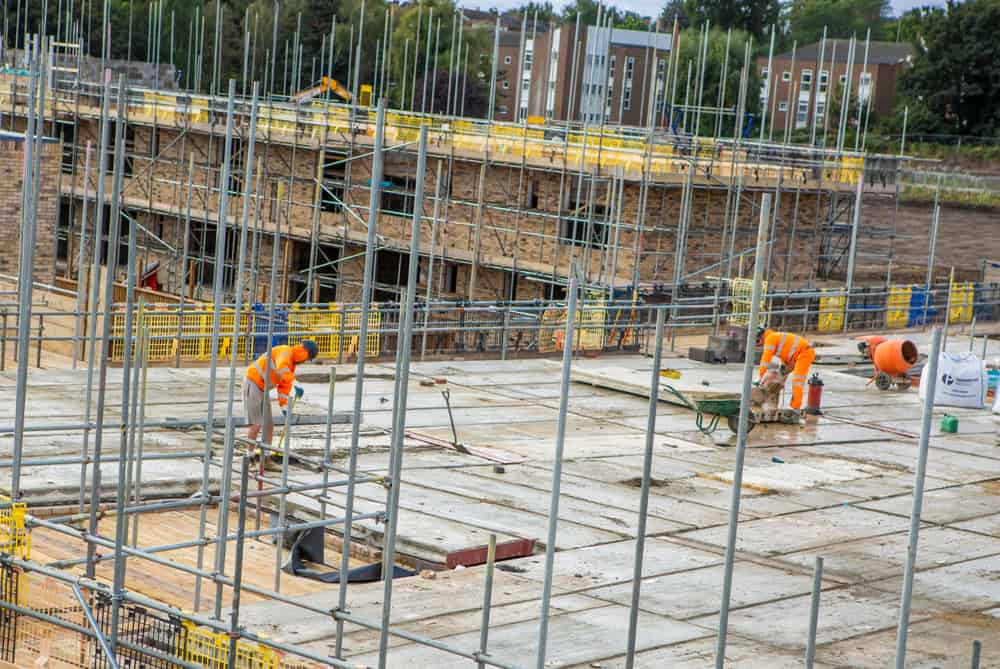Following the Labour Party’s historic victory in the 2024 general election, the scaffolding industry has been swift in its response, highlighting both opportunities and challenges under the new government.
With Keir Starmer at the helm, Labour has promised significant investments in housing and infrastructure, pledges that the scaffolding sector is eager to see come to fruition.
Scaffolding Association’s Immediate Reaction
The Scaffolding Association was the first to react, issuing a statement calling on the new Prime Minister to support scaffolding and access businesses better. Representing 630 member businesses that employ half of the UK’s scaffolding contractor workforce, the Association emphasised the essential role of the scaffolding industry in achieving Labour’s ambitious housing growth plan.

“The new government has committed to building 1.5 million new homes during the next parliament,” stated Robert Candy, Chief Executive of the Scaffolding Association. “Construction businesses are fundamental to achieving this ambitious manifesto commitment.” However, Candy also pointed out several challenges that could hinder progress, including labour shortages, cash flow issues, procurement practices, net-zero targets, rising costs of supplies, and material shortages.
The Association plans to write to the Prime Minister next week, urging the government to support the sector and address these challenges. Candy highlighted the need for stability in ministerial appointments, noting that the industry has seen 23 different ministers since 2001, with 12 in the past five years alone. “We need a minister who can do the job and remain in post long enough to make a difference,” Candy added.
The NASC’s Perspective

Clive Dickin, CEO of the National Access & Scaffolding Confederation (NASC), provided a detailed reaction to Labour’s victory: “Today is a historic day for the UK, seeing a political party winning a major majority with arguably one of the most challenging geopolitical, economic, and societal problems.
Given these challenges, the scaffolding and access sector needs support in ensuring a stable economy, a strong pool of talent to support their business growth, and assurances that bureaucracy is going to be kept to a minimum. An example the sector should be guarded about is the ‘New Deal for Working People’ paper published prior to the general election by the Labour Party. The paper suggested some conclusions that would be challenging.
NASC, through its lobbying programme headed by its Public Affairs and ESG committee, will challenge potential legislation like this, ensuring that NASC members are represented in the highest office to eliminate the potential damage of such legislation.”
PASMA’s Insights

Peter Bennett OBE, Managing Director of PASMA and Chair of the Access Industry Forum, highlighted the opportunity for a new national strategy on tackling falls from height. “A new government is an opportunity for a new national strategy on tackling falls from height, which – according to figures released this week by the HSE – last year claimed the lives of 50 workers, a 22% increase on the previous year.” Bennett emphasised the need for understanding the causes of falls from height and called for a simplified system of reporting workplace accidents. He also urged support for re-establishing the All-Party Parliamentary Group (APPG) on Working at Height.
“We stand ready to work with the new government, as PASMA has done throughout its 50-year history, so that together we can make sure everyone who works at height goes home safely at the end of each shift.”
Federation of Master Builders (FMB) Comments
The Federation of Master Builders (FMB) also shared its perspective on Labour’s victory. Brian Berry, Chief Executive of the FMB, commented: “The election of the new Labour Government offers a fresh start to get Britain building. Labour’s pledge to build 1.5 million new houses over the next five years and upgrade five million existing homes, are ambitious targets but very much needed if the growing housing crisis is to be addressed.
The success of Labour’s housing targets will very much depend on two key issues being addressed. First, the need to reform the planning system to make it easier and quicker to build. Secondly, the urgent need to tackle the skills crisis ensuring we have enough skilled workers in the construction industry to build the homes needed.”
Berry continued: “For too long local authority planning departments have been underfunded with the result that planning applications have been held up. Additional funding for planning departments offers hope that the planning process will speed up to deliver the homes that are needed. A long-term training and skills plan to tackle the shortage of construction workers is desperately needed, as is the need for some form of minimum competency level for builders to ensure quality homes are built, and the ones we have are upgraded to the best standards.”
Berry concluded: “The FMB will work closely with the new Government to help ensure its housing pledges are delivered, and that Britain’s builders can play their part to boost much-needed economic growth.”
Industry-Wide Implications
Labour’s victory, marking a significant shift in the political landscape, is expected to have far-reaching impacts on the scaffolding industry. Key industry figures have outlined several areas of focus for the new government:
Housing and Infrastructure: Labour’s ambitious housing targets are seen as a positive move that could drive demand for scaffolding services. Simplifying the planning process is crucial to achieving these goals.
Skills and Training: Addressing the skills shortage is paramount. The scaffolding industry looks forward to the implementation of Labour’s proposed training programs and incentives.
Safety Standards: Maintaining and enhancing safety standards is a continuous priority. Labour’s commitment to improving safety regulations is seen as a beneficial move for the industry.
Sustainability: With Labour’s focus on green policies and renewable energy, there are opportunities for the scaffolding industry to engage in projects that support the UK’s net zero targets by 2050.
Labour’s Key Pledges for Construction
Labour’s manifesto, titled “Change,” outlines several key measures for the construction sector:
- Building 1.5 million new homes over the next parliament.
- Reinstating mandatory housing targets and strengthening presumptions in favour of sustainable development.
- Prioritising the release of lower-quality “grey belt” land for development.
- Developing a 10-year infrastructure strategy to provide the private sector with certainty about project pipelines.
- Investing an extra £6.6 billion to upgrade five million homes as part of the Warm Homes Plan.
Charting a New Course
The scaffolding industry is cautiously optimistic about the opportunities presented by Labour’s election victory. The promise of significant investments in housing and infrastructure is seen as a positive move that could drive demand for scaffolding services. However, the industry also faces several challenges that need to be addressed, including labour shortages, cash flow issues, and rising costs of supplies.
As Labour begins its term with a strong mandate, the scaffolding industry is ready to collaborate with the new government to ensure that the ambitious infrastructure and housing plans are realised effectively. This new era under Labour’s leadership holds promise for the scaffolding industry, provided the government delivers on its commitments to reform planning, invest in skills, and maintain high safety standards. The coming months will be crucial in shaping the future landscape of the UK’s construction and scaffolding sectors.



